#Dog Vaccinations
Explore tagged Tumblr posts
Link
Dog Health Myths
#Dog health#Dog health care#Dog health advice#Dog health tips#Healthy dogs#Dog grooming#Dog vaccinations#Dog nutrition#Dog healthy food#Dog healthy diet#Dog blog#Dog dad#Dog mom
5 notes
·
View notes
Text
First-Year Puppy Vaccinations
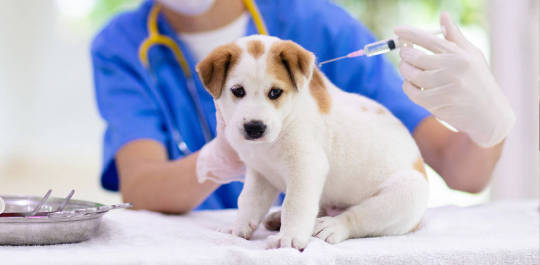
When you bring that fuzzy ball of puppy energy into your home, you know right away that your new puppy depends on you for, well, everything. It’s up to you to give your new puppy all the care they need every day. It can be a little intimidating — your puppy needs the best puppy food, plenty of attention, puppy training, puppy-safe toys, puppy socialization, a comfortable place to sleep, and proper veterinary care. And that includes making sure to schedule puppy shots throughout your puppy’s first year.
Which Shots Do Puppies Need?
Going to the vet over several months for a series of puppy vaccinations—and then for boosters or titers throughout your dog’s life—may seem inconvenient, but the diseases that vaccinations will shield our puppies and dogs from are dangerous, potentially deadly, and, thankfully, mostly preventable.
We read about so many different dog vaccinations, for so many different illnesses, that it can sometimes be confusing to know which vaccinations puppies need and which puppy shots are important but optional. Here is an overview of the diseases that puppy vaccinations will help your pet avoid.
Bordetella Bronchiseptica
This highly infectious bacterium causes severe fits of coughing, whooping, vomiting, and, in rare cases, seizures and death. It is the primary cause of kennel cough. There are injectable and nasal spray vaccines available.
If you plan on boarding your puppy in the future, attending group training classes, or using dog daycare services, often proof of this vaccination will usually be required.
Canine Distemper
A severe and contagious disease caused by a virus that attacks the respiratory, gastrointestinal (GI), and nervous systems of dogs, raccoons, skunks, and other animals, distemper spreads through airborne exposure (through sneezing or coughing) from an infected animal. The virus can also be transmitted by shared food and water bowls and equipment. It causes discharges from the eyes and nose, fever, coughing, vomiting, diarrhea, seizures, twitching, paralysis, and, often, death. This disease used to be known as “hard pad” because it causes the footpad to thicken and harden.
There is no cure for distemper. Treatment consists of supportive care and efforts to prevent secondary infections, control symptoms of vomiting, seizures and more. If the animal survives the symptoms, it is hoped that the dog’s immune system will have a chance to fight it off. Infected dogs can shed the virus for months.
Canine Hepatitis
Infectious canine hepatitis is a highly contagious viral infection that affects the liver, kidneys, spleen, lungs, and the eyes of the affected dog. This disease of the liver is caused by a virus that is unrelated to the human form of hepatitis. Symptoms range from a slight fever and congestion of the mucous membranes to vomiting, jaundice, stomach enlargement, and pain around the liver. Many dogs can overcome the mild form of the disease, but the severe form can kill. There is no cure, but doctors can treat the symptoms.
Canine Parainfluenza
This is one of several viruses that can contribute to kennel cough.
Coronavirus
The canine coronavirus is not the same virus that causes COVID-19 in people. COVID-19 is not thought to be a health threat to dogs, and there is no evidence it makes dogs sick. Canine coronavirus usually affects dogs’ gastrointestinal systems, though it can also cause respiratory infections. Signs include most GI symptoms, including loss of appetite, vomiting, and diarrhea. Doctors can keep a dog hydrated, warm, and comfortable, and help alleviate nausea, but no drug kills coronaviruses.
Heartworm
When your puppy is around 12-to-16 weeks, talk to your vet about starting a heartworm preventive medication. Though there is no vaccine for heartworm in dogs, it is preventable with regularly administered heartworm medication that your veterinarian will prescribe.
The name is descriptive — these worms lodge in the right side of the heart and the pulmonary arteries (that send blood to the lungs), though they can travel through the rest of the body and sometimes invade the liver and kidneys. The worms can grow to 14 inches long and, if clumped together, block and injure organs.
A new heartworm infection often causes no symptoms, though dogs in later stages of the disease may cough, become lethargic, lose their appetite or have difficulty breathing. Infected dogs may tire after mild exercise. Unlike most of the conditions listed here, which are passed by urine, feces, and other body fluids, heartworms are transmitted by mosquitoes. Therefore, diagnosis is made via a blood test and not a fecal exam.
Kennel Cough
Also known as infectious tracheobronchitis, kennel cough results from inflammation of the upper airways. It can be caused by bacterial, viral, or other infections, such as Bordetella and canine parainfluenza, and often involves multiple infections simultaneously. Usually, the disease is mild, causing bouts of harsh, dry coughing; sometimes it’s severe enough to spur retching and gagging, along with a loss of appetite. In rare cases, it can be deadly. It is easily spread between dogs kept close together, which is why it passes quickly through kennels. Antibiotics are usually not necessary, except in severe, chronic cases. Your vet may prescribe a dog-safe cough suppressant to help your dog (and you) get some rest, and some dog-safe throat soothers can help make a dog more comfortable.
Leptospirosis
Unlike most diseases on this list, Leptospirosis is caused by bacteria, and some dogs may show no symptoms at all. Leptospirosis can be found worldwide in soil and water. It is a zoonotic disease, meaning that it can be spread from animals to people. When symptoms do appear, they can include fever, vomiting, abdominal pain, diarrhea, loss of appetite, severe weakness and lethargy, stiffness, jaundice, muscle pain, infertility, kidney failure (with or without liver failure). Antibiotics are effective, and the sooner they are given, the better.
Lyme Disease
Unlike the famous “bull’s-eye” rash that people exposed to Lyme disease often spot, no such telltale symptom occurs in dogs. Lyme disease (or borreliosis) is an infectious, tick-borne disease caused by a type of bacteria called a spirochete. Transmitted via ticks, an infected dog often starts limping, his lymph nodes swell, his temperature rises, and he stops eating. The disease can affect his heart, kidney, and joints, among other things, or lead to neurological disorders if left untreated. If diagnosed quickly, a course of antibiotics is extremely helpful, though relapses can occur months or even years later.
Talk to your vet about when your puppy will be old enough for tick preventatives. Once your puppy is old enough, keep your dog on tick preventative medication, topicals, or wearables to help stop ticks from biting in the first place.
Parvovirus
Parvo is a highly contagious virus that affects all dogs, but unvaccinated dogs and puppies less than four months of age are at the most risk to contract it. The virus attacks the gastrointestinal system and creates a loss of appetite, vomiting, fever, and often severe, bloody diarrhea. Extreme dehydration can come on rapidly and kill a dog within 48-to-72 hours, so prompt veterinary attention is crucial. There is no cure, so keeping the dog hydrated and controlling the secondary symptoms can keep him going until his immune system beats the illness.
Rabies
Rabies is a viral disease of mammals that invades the central nervous system, causing headache, anxiety, hallucinations, excessive drooling, fear of water, paralysis, and death. It is most often transmitted through the bite of a rabid animal. Treatment within hours of infection is essential, otherwise, death is highly likely. Most states require regular rabies vaccinations. Check with your vet about rabies vaccination laws and requirements in your area.
Talk with your veterinarian about more information and guidance on necessary and optional vaccinations.
Puppy Vaccination Schedule
The first thing to know is that there is not just one puppy vaccination schedule for all dogs. Factors such as which part of the country you live in, and your dog’s individual risk factors will come into play. Some dogs do not need every vaccine. This decision is between you and your veterinarian. Always discuss puppy vaccinations at your regularly scheduled appointments.
That said, here is a generally accepted guideline of the puppy vaccination schedule for the first year.
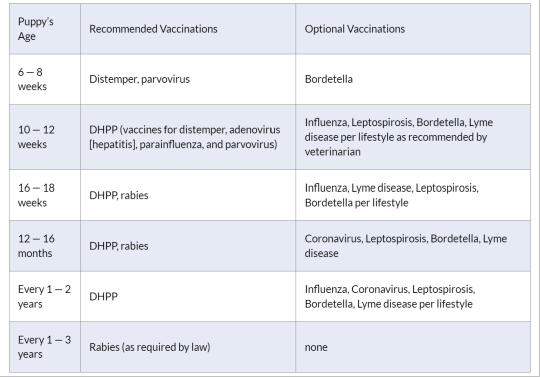
How Much Do Puppy Vaccinations Cost?
How much puppy vaccinations will cost depends on several factors. Where you live is a big one: Veterinarians in crowded and expensive urban areas will generally charge more than a rural vet in a small town. You may be able to find low-cost clinics providing rabies vaccinations sponsored by your local municipal government. But no matter what the range in costs, some vaccines, such as the “core vaccines” and rabies, are necessary.
The average cost can average around $75—100. These will include the core vaccines, which are administered in a series of three: at 6-, 12-, and 16 weeks old.
The core vaccines include the DHLPP (distemper, hepatitis, leptospirosis, parvo, and parainfluenza). Your pup will also need a rabies vaccination, which is usually around $15—20. (Some clinics include the cost of the rabies vaccination.)
Often animal shelters charge less for vaccines — approximately $20 — or are even free. If you acquired your dog from a shelter, he would most likely have been vaccinated, up until the age when you got him.
The initial puppy vaccination costs during the first year are higher than during adulthood.
Vaccinations for Adult Dogs: Boosters and Titers
There is a difference of opinion about having your adult dog vaccinated every year. Some vets believe too many vaccinations in adult dogs pose health risks. But others disagree, saying that yearly vaccinations will prevent dangerous diseases such as distemper. Talk with your vet to determine what kind of vaccination protocol works for you and your dog.
Many dog owners opt for titer tests before they administer annual vaccinations. Titer tests measure a dog’s immunity levels, and this can determine which, if any, vaccinations are necessary. One key exception to this is rabies: a titer test is not an option when it comes to the rabies vaccine. This vaccination is required by law across the United States. Your vet can tell you the schedule for your particular state, with boosters often lasting three years.
And it’s all worth it. For your effort and care your puppy will lavish you with lifelong love in return. This critical first year of her life is a fun and exciting time for both of you. As she grows physically, the wonderful bond between you will grow, too.
#puppy vacinations#puppy vaccines#puppy shots#puppy shots schedule#dog vaccinations#dog health#puppy health
5 notes
·
View notes
Text
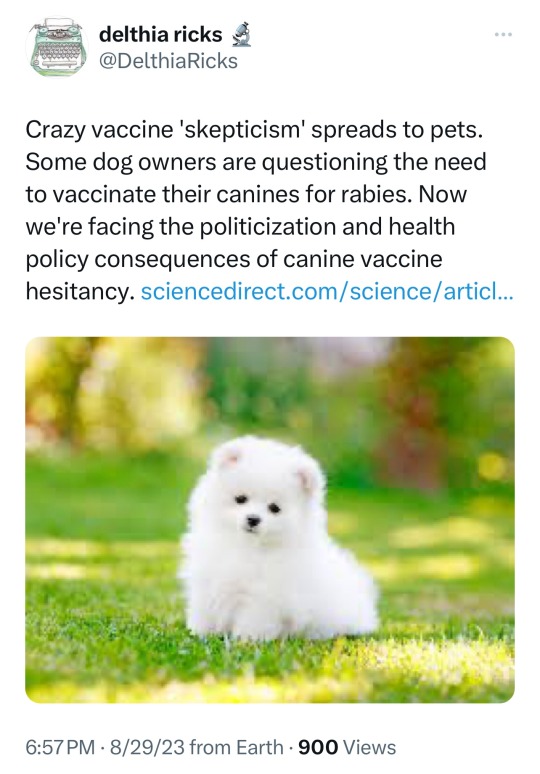
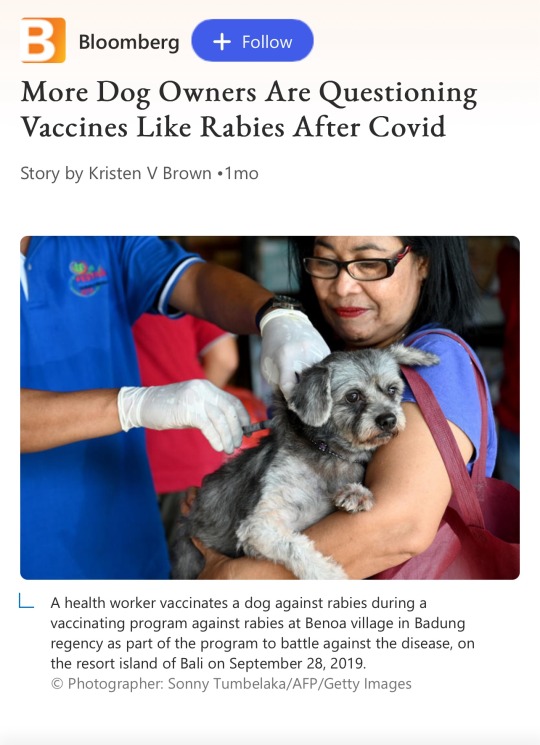
Istg, if I ever get rabies because some dumb ass antivaxxer refused to vaccinate their dog, I’ll probably be doing the rest of my blogging from prison because I promise you, Imma curbstomp the shit out of the owner
#politics#republicans#antivaxxers#rabies#dogs#vaccine skepticism#vaccine hesitancy#animal abuse#pets
28K notes
·
View notes
Text
Dog Vaccinations Los Angeles: A Positive Choice
Ensure your dog's health with our professional dog vaccinations Los Angeles. Our caring staff takes the stress out of vaccinations, making it easy to protect your pet from preventable diseases. Whether you have a playful puppy or a mature companion, our experienced team will create a vaccination plan tailored to your dog's unique needs.

0 notes
Text
More than half of Americans are skeptical about vaccinating their dog
The recent pandemic brought vaccine hesitancy to the forefront in the US and now a new study shows this skepticism has extended to our canine companions. With the pet population on the rise in the US, the new study led by Boston University’s School of Public Health in partnership with YouGov, showed that dog parents consider vaccines administered to dogs to be unsafe (37%), while 22% consider it…

View On WordPress
#canine vaccinations#canine vaccine hesitancy#dog friendly#dog rabies#dog vaccinations#dog vaccines#pet friendly#pet travel#pet vaccinated#pet vaccination#travel with dog#vaccination hesitancy
0 notes
Photo
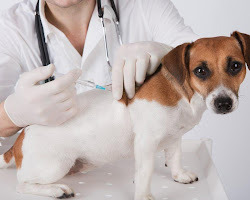
Just Published on On Saving Man's Best Friend Dog Vaccinations: The Importance of Protecting Your Pet's Health https://phillipmccloud.com/dog-vaccinations-the-importance-of-protecting-your-pets-health/ As pet owners, it is our responsibility to ensure the health and well-being of our furry friends. One crucial aspect of pet care is vaccinations. Dog vaccinations play a vital role in safeguarding your pet’s health and preventing the onset of various diseases. In this comprehensive guide, we will explore the importance of dog vaccinations, […]
#bordetella#canine distemper#core vaccines#dog vaccinations#importance of vaccinations#leptospirosis#lyme disease#non-core vaccines#parvovirus#rabies
0 notes
Text
at my last midwife appointment i got the tdap shot so i asked if there were any other recommended vaccines at this stage and midwife (who hadn't met me before) kinda gave this polite look and went "well... that depends on how you feel about vaccines" and i say "oh HUGE fan. biiig big fan." you could feel the relief for the rest of the very friendly visit lol these poor healthcare workers
148 notes
·
View notes
Text

Togo would also be pretty pissed.
124 notes
·
View notes
Text

Cute "cat + dog" logo for a petshop 🐶🐈🐾🧡
Get your unique & creative logo! Your brand visual identity is as much as important as marketing.
#dog#cat#petshop#petcare#logo#hello kitty#puppy#pet vaccines#pet care#negative space#modern#black and white#drawing#sketch#digital art#vector#illustration#artists on tumblr
44 notes
·
View notes
Text
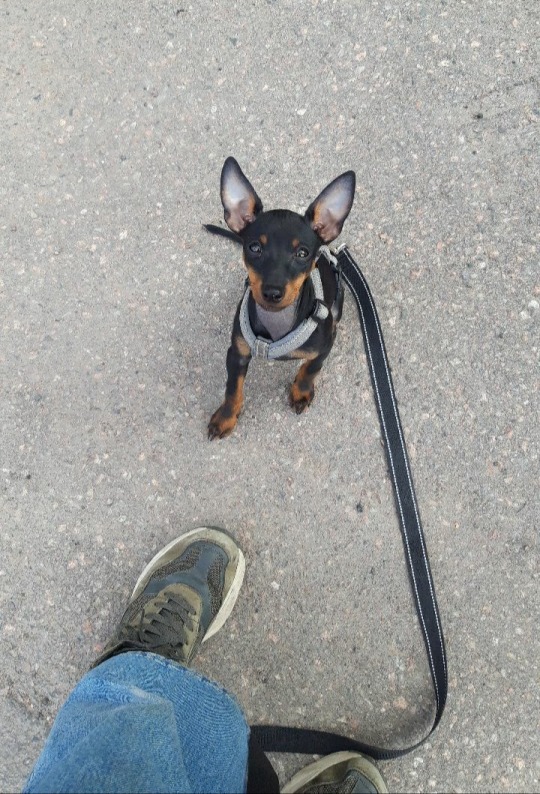
How can you say no to those eyes?
#someone got his first vaccine !#he was beimg very brave about it#being*#dog#dogblr#dogs#english toy terrier#puppy#puppies#terrier#terriers#cute#dogs of tumblr#pretty boy remi#12 weeks
72 notes
·
View notes
Note
Hi! I know that it's important to socialize a puppy well with both people and other dogs. But I also know you shouldn't let a puppy in contact with other dogs or walk it in areas where other dogs go before they have been fully vaccinated to prevent diseases.
Does that mean the socialization starts only after they get all their vaccines? Or is there something I'm missing here? Also because I thought the early periods of a dog's life were especially important with regards to socialisation.
Thanks!
Question tax: who was the cutest puppy you've seen recently?
vet-and-wild here.
It is no longer recommended to wait to start socializing a puppy until after their vaccine series is done, but you do need to take precautions. The reason is that there is a critical socialization window right in the middle of this time that ends around 16 weeks. That doesn't mean they can't learn or be socialized outside of this time, but the experiences they have in this time period are very important for setting the stage to how they react to stimuli in the future. Puppies who are improperly or under socialized during this period are much more likely to have behavioral issues as adults.
It's important to also understand why we booster puppy vaccines so many times. Depending on what kind of vaccines or disease exposure the mother had, this same time period is when the maternal antibodies the puppy received will be lost. Those maternal antibodies protect the puppy, but also interfere with vaccine efficacy. We don't know when they will lose the protection from those maternal antibodies, so we booster through this period to make sure they are protected. So just having 1 or 2 vaccines wouldn't guarantee that the puppy was fully protected.
The compromise is to avoid areas of potentially higher risk during this time. Dog parks, for example, may be full of dogs of unknown vaccine status and could have wildlife around that may carry parvo, distemper, etc. However, a puppy class at a reputable training facility only allows vaccinated dogs and should have disinfection protocols in place to help reduce the risk of disease spread. Basically, your puppy doesn't need to live in a bubble during this period, but you should use reasonable caution. Also keep in mind that socialization doesn't necessarily mean meeting a bunch of people or dogs! It just means positive exposure. Sitting out in your yard and practicing appropriate reactions to strange dogs walking by is socialization. Playing videos with thunder, fireworks, etc and getting the puppy used to it is socialization. Getting used to the car, medical handling, grooming, strangers coming in the house, all of that is part of socialization.
I tried to think of the cutest puppy I've seen but I'm going to be lame and say they're all cute cuz I keep changing my mind!
296 notes
·
View notes
Text
i think the most annoying part of dog food discourse is how many people will act as though proplan/hill’s/Royal canin diets aren’t extremely and prohibitively expensive and that THAT is the reason so many people look into healthy alternatives.
People complain about corn being in the first five ingredients on most of those feeds because, regardless of other factors here, that is not an expensive ingredient. But it makes up a large chunk of the dry food. So the dry food should be fairly affordable, right?
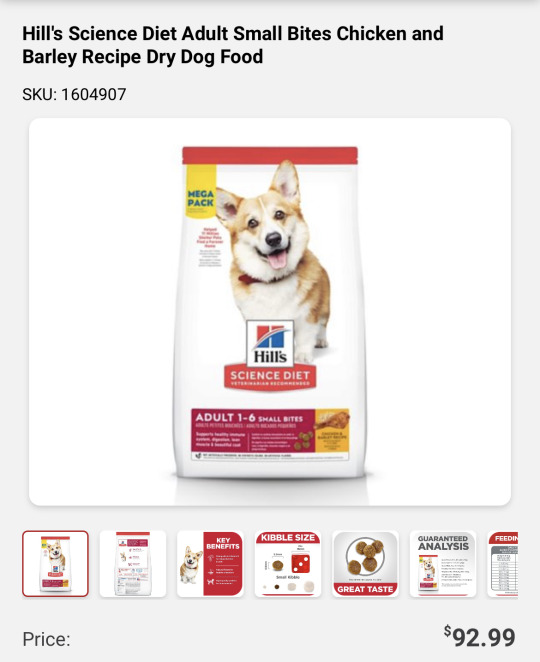
Oh… with tax you’re spending about $100 for one 45lb bag of food where the third ingredient is wheat and the fourth and fifth ingredients are corn.
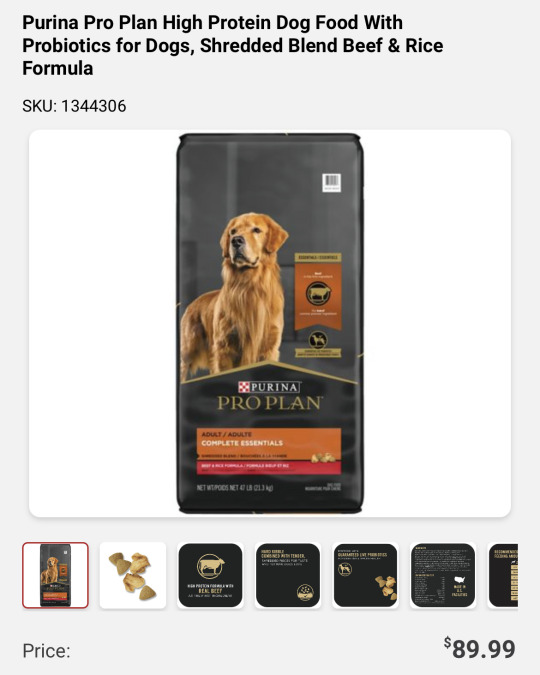
Oh… well! It’s slightly cheaper! But the second ingredient is rice, third is wheat, fourth is corn, and then fifth is poultry byproduct. None of those are very expensive so this just must be the low end cost of dog food unfortunately. The vets recommend it so surely that means prices aren’t inflated, right?
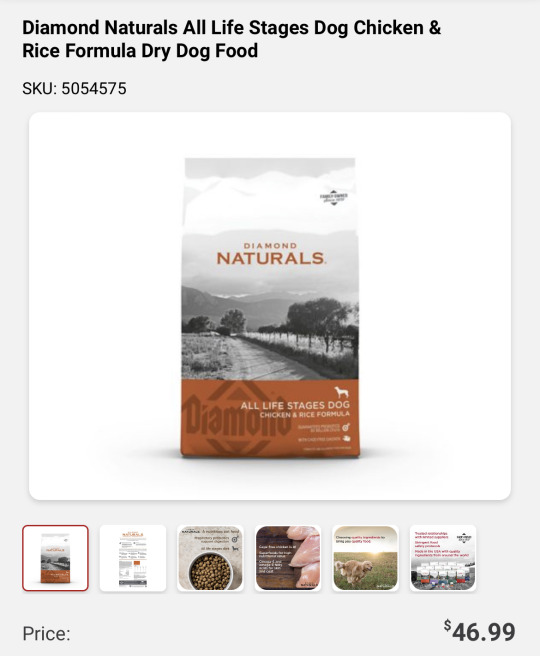
Oh? This one has similar ingredients with the only real difference being no corn? And it’s half the price?? Well surely that’s just a fluke.
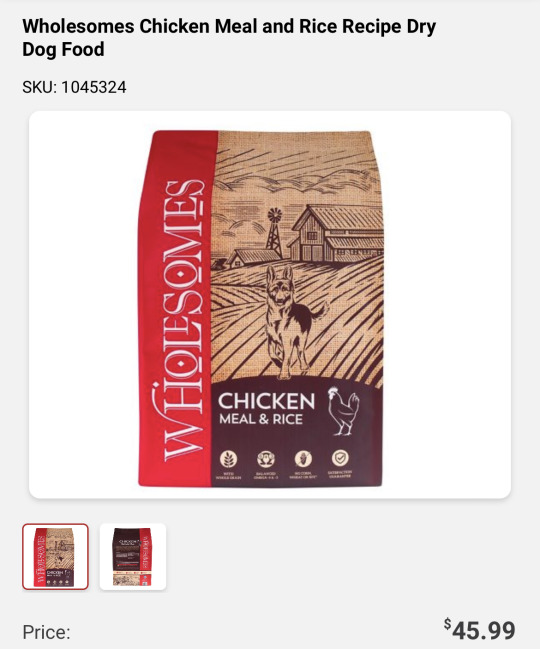
Oh. Oh no.
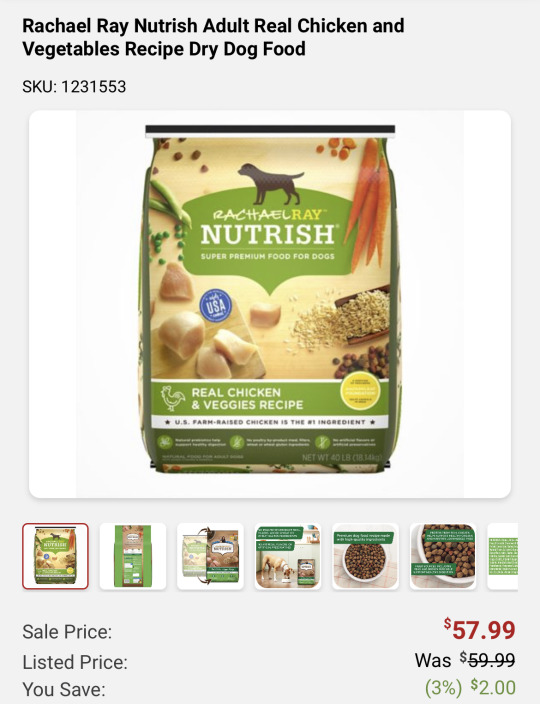
This one even has CORN in it and it’s $20 cheaper?? Wow!
Like listen at some point I don’t care if your dog food has the ichor of the gods in it, I’m not spending $100 every five days if there are cheaper options with just as many “good” ingredients in it. If you think I’m a dog abuser because I can’t afford this overpriced garbage, that’s too bad. I don’t care. My dogs are perfectly healthy with the food I give them. Great weight and great coat. People giving dog food recommendations that aren’t those top three hyper-expensive dog foods aren’t trying to epic own those dastardly vets half the time, but I really don’t blame the ones who do lose trust in vets when the only heartworm protection they recommend lately are expensive triple-action brands like Simparica Trio that costs $120+ as opposed to the other heartworm protections that are only about $40-$60 on average, which is still cheaper even if you add on a $20-$40 flea and tick protection separately, and only recommend dog food that costs $85+ a bag even if your dog doesn’t have specialized dietary needs.
Those top three foods are GREAT at making competent prescription diets, I don’t deny that. I do still have to criticize the pricing of those prescription diets though because I have spoken to DOZENS of people who had to pull their pets off of a prescription diet and struggle to find something comparable because they couldn’t afford the food, and that’s terrible! These are not poor companies! Purina, Royal Canin, and Hill’s can ABSOLUTELY afford to lower their prices to make their food accessible to people who need it for their animals but they don’t. They probably never will. Because at the core they are run by greedy corporations. It doesn’t matter how many good nutritionists are on board if the company is run by people who put profits over customers and make the food impossible for people to afford.
#I keep seeing posts from people on both sides of this#and it is frustrating to see how many vets don’t seem to acknowledge#that a MASSIVE part of the dog food debate has and always will be#the inaccessibility of these three brands#because whether corn is good or bad or neutral for a dog#It’s a cheap ingredient#any meat byproducts are a cheap ingredient#wheat in any form is a cheap ingredient#rice is a cheap ingredient#they aren’t putting Diamond dust and gold flakes in the kibble it’s very accessible and affordable ingredients for the most part#and many comparatively smaller companies use very similar ingredients and make food people can actually afford#So yeah when people look at these factors it does make them distrust vets who will almost exclusively push expensive brands#and that’s where the distrust is coming from#it’s not primarily smug tiktok kids who think they know everything#it’s just people who have less money than you and get treated like they care less for their animals because of it lol#and people who feel scammed because anything veterinary is already expensive to the point not everyone can afford it as regularly as needed#the fact people have to give pets vaccines themselves to make ends meet because most vets charge so much just to walk in the door#is a sign of a larger problem#I criticize people who avoid taking animals with surprise sickness or injuries to the vet#but it’s not exactly hard to see why that isn’t even an option for a lot of people#people can’t even afford surgery on themselves if they’re suddenly injured out of the blue in this country#So I can’t pretend to be shocked they don’t have $10k squirreled away if something unavoidable happens to a pet#no one is entitled to an animal they can’t afford yes yes but a routine vet visit shouldn’t be $600-$1000 per animal sorry#give me a copay or something
84 notes
·
View notes
Text
Really wish people would realize that just because "that's how (animal) survives in the wild!" doesn't mean that's a good thing.
Like... there's a reason humans have moved on to different kinds of foods, learned how to make better shelters, advanced medicine, etc. There's also a reason we shoe horses, put leashes on pets, give them a more balanced diet, keep them inside barns/homes/kennels more often, groom their coats, get them dental cleanings, get them vaccinated, etc.
And if that doesn't make sense, peep the differences between "(animal) lifespan in the wild" versus "(animal) lifespan in captivity".
The wild isn't better or safer.
(Also, domestic animals like horses, cats, dogs, sheep, and such aren't wild animals, jfc. They've evolved to be taken care of by humans. So fucking take care of them.)
#this was about people handwringing over shoeing horses#it doesn't hurt them and in fact it helps them#no wild horses don't get shoed but who said that's a good thing for wild horses? do you think wild horses have it better and easier?#wild animals have it a lot fucking harder#they get sicker more often and they often die sooner#domestication isn't evil#doing things that improve an animal's life and wellbeing isn't evil#especially when it doesn't even hurt them#please for the love of fuck take basic precautions to care for your pets#leash your dogs keep your cats indoors shoe your horses and vaccinate your pets#animal neglect jic I guess
27 notes
·
View notes
Text

WTF DOES "APATHY TO DEATH" LOOK LIKE AS A SYMPTOM IN DOGS
#THE VACCINE CLINIC MY MOTHER WANTS TO GO TO DOESN'T OFFER HEPATITIS VACCINES#WHICH IS SOMETIMES LISTED AS A CORE VACCINE AND SOMETIMES NOT#THAT IS WHY I WAS GOOGLING HEPATITIS IN DOGS
22 notes
·
View notes
Text

I forgot to do a Week 4 Recap post this week but she's crushing it.
#dogblr#rory borealis#she's honestly turning into such a cool little dog#we focused more on cooperative care and conditioning this week#since it was xmas so i wasnt motivated to go out#anyway we started pivots balancing exercises and proper positioning for square sits#also worked on combing clipping and nail grinding#this week's victory was really good name recognition and learning to ask for things (food training outside snuggles)#next week's goal is more neutrally around pinecone and starting on polite greetings (all four feet on the floor)#she has her last set of vaccines and starts one of her puppy classes and has a puppy grooming session#im excited to see what she learns from them
51 notes
·
View notes
Text
Dog Vaccinations: The Importance of Protecting Your Pet's Health
As pet owners, it is our responsibility to ensure the health and well-being of our furry friends. One crucial aspect of pet care is vaccinations. Dog vaccinations play a vital role in safeguarding your pet’s health and preventing the onset of various diseases. In this comprehensive guide, we will explore the importance of dog vaccinations, their benefits, common misconceptions, and frequently…
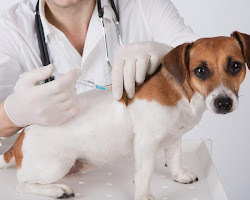
View On WordPress
#bordetella#canine distemper#core vaccines#dog vaccinations#importance of vaccinations#leptospirosis#lyme disease#non-core vaccines#parvovirus#rabies
1 note
·
View note